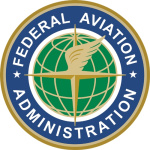- Industria: Government
- Number of terms: 35337
- Number of blossaries: 0
- Company Profile:
Satellite navigation system that provides autonomous geospatial positioning with global coverage. It allows small electronic receivers to determine their location (longitude, latitude, and altitude) to within a few meters using time signals transmitted along a line of sight by radio from satellites.
Industry:Aviation
A pair of synchronized flashing lights, located laterally on each side of the runway threshold, providing rapid and positive identification of the approach end of a runway.
Industry:Aviation
Navigation system that uses satellite rather than ground-based transmitters for location information.
Industry:Aviation
The visibility determined for a particular runway by a transmissometer.
Industry:Aviation
As used in radio frequency (RF) antenna systems, a direction-sensing device consisting of two fixed loops of wire oriented 90° from each other, which separately sense received signal strength and send those signals to two rotors (also oriented 90°) in the sealed direction-indicating instrument. The rotors are attached to the direction-indicating needle of the instrument and rotated by a small motor until minimum magnetic field is sensed near the rotors.
Industry:Aviation
The instrumentally derived horizontal distance a pilot should be able to see down the runway from the approach end, based on either the sighting of high-intensity runway lights, or the visual contrast of other objects.
Industry:Aviation
The illusion of the cessation of a turn while still in a prolonged, coordinated, constant rate turn, which can lead a disoriented pilot to a loss of control of the aircraft.
Industry:Aviation
Data broadcast by the GPS satellite containing very accurate orbital data for that satellite, atmospheric propagation data, and satellite clock error data.
Industry:Aviation
The shortest distance across the surface of a sphere (the Earth) between two points on the surface.
Industry:Aviation
The first fundamental skill of instrument flight, also known as “cross-check;” the continuous and logical observation of instruments for attitude and performance information.
Industry:Aviation
